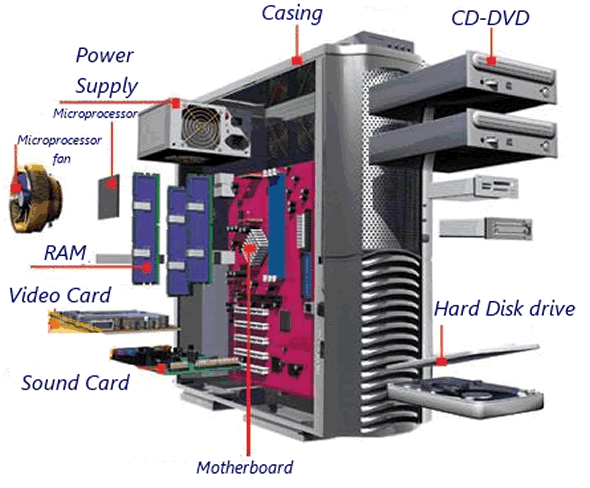In the world of gaming, where speed and performance reign supreme, a lot of players are looking towards excess computer components as a savvy alternative to expensive, brand-new components. Whether you are a veteran gamer wanting to improve your system or a novice looking to assemble a cost-effective configuration, grasping how to work within the surplus market can unveil a plethora of opportunities. Equipped with the proper insights, you can discover top-notch parts that improve your gaming experience without breaking the bank.
This guide will equip you with crucial advice and information on what to look for when shopping for surplus computer parts. From recognizing authentic components to assessing their quality, you will learn how to make informed decisions and avoid common pitfalls. If you're wondering whether these surplus items are worth your time, or how to spot a great deal among the multitude of options available, you're in the right place. Let’s explore the ultimate guide for purchasing surplus computer components and discover the best practices for securing the gear you need to conquer the gaming world.
Ultimate Guide to Acquiring Surplus Parts
When considering surplus computer parts for your gaming and technical needs, it's essential to start with detailed research. Identify the components you want for your setup, including their specifications and performance benchmarks. This information will help you differentiate which surplus items are real value and which might be inferior options. Getting familiar yourself with reputable brands and products can also give a solid foundation for making informed decisions.

Next, assess the supplier of your surplus parts. Reliable sellers, such as well-known online retailers or local computer shops, often have better quality control measures and return policies. Steer clear of purchasing from unfamiliar or disreputable sources, as this increases the risk of obtaining imitation or defective components. Ensure you read customer reviews and feedback, noting the seller's reputation for customer service and the reliability of their products.
Finally, be mindful of the state of surplus parts before finalizing a purchase. Check for any obvious signs of usage, damage, or defects, especially in critical components like motherboards, graphics cards, and power supplies. If more tips here , ask about testing procedures the seller implements to confirm the functionality of their products. This step will help you avoid common pitfalls and ensure that you're investing in high-quality surplus parts that will provide top-notch performance for your gaming setup.
Evaluating Quality and Compatibility
While shopping for additional computer components, confirming the quality and suitability of components is essential for enhancing your gaming experience. High-quality surplus parts can offer excellent performance at a fraction of the cost of brand-new components. Begin by examining the visible condition of each part; look for signs of damage such as corrosion, broken circuit boards, or warped pins. Furthermore, consider the brand reputation and the guarantee, if available. Established brands usually have rigorous quality control standards, which can greatly enhance reliability.
Suitability is another key factor to keep in mind. Before making a buy, research the specific specifications for your current system. This includes verifying motherboard socket types, supported RAM frequency, and GPU size constraints. Most producers provide comprehensive specifications for their products, which can guide you in ensuring that new components integrate seamlessly into your configuration. Utilizing online groups and forums can also provide important insights, assisting you to make informed decisions.
Lastly, never underestimate the importance of evaluating surplus parts when possible. If you have access to a system where you can validate a part’s functionality prior to making a purchase, seize that opportunity. This is especially important for pre-owned graphics cards, hard drives, and power supplies, which can significantly affect system stability and performance. By focusing on quality and confirming compatibility, you can confidently invest in surplus components that will elevate your gaming experience.
Enhancing Value and Performance
To boost benefit and performance when purchasing unused computer parts, it is essential to emphasize caliber and compatibility. Start by investigating the specifications of the parts you need. Verify they are fitting with your current setup to avoid costly errors. A carefully considered buy can maximize your investment and lower the chances of future enhancements or replacements.
Another key factor is evaluating and checking the quality of the parts before completing your transaction. For example, when purchasing second-hand graphics cards or CPUs, look for signs of damage, such as thermal issues or tangible defects. Learning how to perform load tests for parts will help you make sure they meet your performance criteria. Credible sellers might also provide a return policy, which can give some peace of mind.
Finally, consider the long-term consequences of your acquisitions. Committing funds in top-notch unused parts may ask for a bit additional upfront but can lead to superior efficiency and a greater operational life. Focus on parts known for their durability and reliability, such as power supplies and system boards. This thoughtful strategy to picking excess parts can significantly boost your gaming experience while remaining within financial limits.
